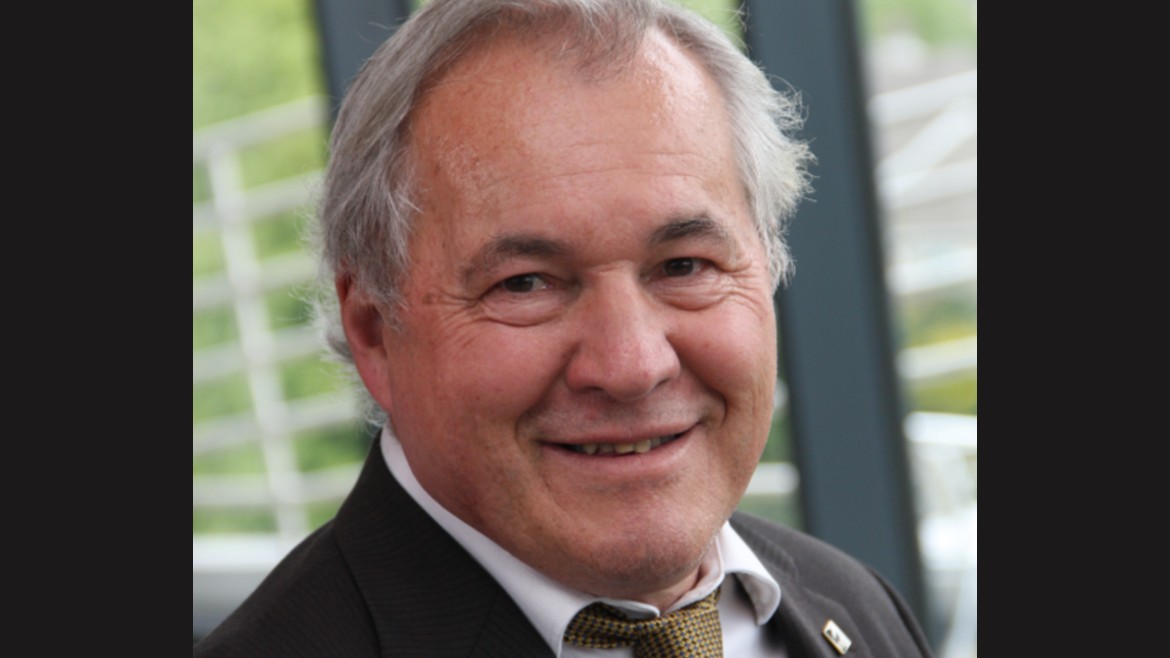Whither higher education after COVID?

He has authored or edited more than 30 books on various topics related to globalisation, international development and social movements as well as over 100 academic journal articles.
He is the founding chair of the Development Studies Association of Ireland and of Campus Engage, the national platform for civic engagement in Ireland.
At a recent launch of the Council of Europe book “Higher Education's response to the Covid-19 pandemic. Building a more sustainable and democratic future” Ireland’s Minister for Further and Higher Education, Research, Innovation and Science Simon Harris said:
“Our higher education institutions, our learners and staff, have risen to the challenges presented by the COVID-19 pandemic with grace and resilience. We have dealt with problems, but we have also found new ways of doing things, and that’s the change I want to see embedded as we recover. I don’t want to see us going back to the same old – we know better now, and we will do better as a result, not only as an educational ecosystem, but as a society.”[1]
In brief, going back to the ‘same old’ (way of doing things) is not seen as an option for the Minister designing the new strategy for Ireland’s higher and further education system.
A conference of the European Ministers for Education in October 2020 had, for its part, declared that: “Times of crisis make safeguarding democracy particularly important and challenging. We reaffirm the importance of education to developing the culture of democracy that will enable democratic societies with their institutions, laws, and elections to function in practice” [2]. In other words, the new post-pandemic university will need to have at its centre the democratic mission of the university.
There is no doubt that the university sector has responded well to the COVID-19 crisis and this has been noted by the political system and by civil society. In Ireland we have had one university President act as the chair of the national public health emergency team and another ex-President was placed in charge of the high level task force in charge of delivering the COVID vaccine. Universities have worked hard on the research front in relation to the pandemic and have contributed much needed expertise and commitment. But it goes deeper than that, because higher education has shown a remarkable level of resilience and ability to deal with adverse circumstances. It has risen to the occasion so to speak.
The COVID-19 crisis has shown the resilience and resources that universities can offer. However, it has also shown the inequalities that not only exist but have been exacerbated by the pandemic. We do need to be bold moving forwards, rethinking our mission to make the higher education system more fit for purpose in the future.
What the COVID-19 crisis presents is both a challenge and an opportunity. Of course the economic situation for many universities will be difficult, of course our staff and students have gone through a very difficult time, and our communities have also suffered badly in so many ways. But a mythical ‘return to normal’ is, in my view, neither possible of desirable. The pandemic has exposed many inequities, in terms of access to higher education, ability to transition to online learning effectively, and the arguably dangerous reliance on overseas student income. We simply need to move forward to survive, find new impetus for our mission to educate and generate new knowledge.
I would argue that we need to place the public role of the higher education system in first place. It is society at large it serves and not a particular sector or interest group. This responsibility is shared with the public authorities that establish the framework within which higher education operates, not least our finance and governance frames. If higher education is to help shape the post-COVID world, these frames will need to be addressed with urgency. The recommendations for funding reform have been kicked down the road for far too long. The balance between a much-cherished institutional autonomy and the good governance principles that society requires is not really addressed clearly and openly.
One of the key issues that needs to be addressed is that of sustainability. This needs to embrace more than good financial and governance norms, it has to address social engagement if the university is to be relevant and a leader of positive change. This kind of change will require a new mind-set, with collaboration replacing competition, and the nurturing of social relationships instead of a survival-of-the-fittest ethos. Student idealism and civic engagement are much diminished when universities are seen to abandon the pursuit of knowledge for a relentless commercialisation of all its aspects.
The reaction to COVID-19, unprompted and spontaneous as it was, shows there are active germs of creativity and commitment present that can serve society well in the future. Higher education as a public good and a university that is engaged with society may well be a positive side benefit of the pandemic.
If we were to engage the full range of the very considerable academic and institutional resources of the university to address our local and national inequalities and, to be honest, deficits, then we can make a difference. Universities will need to demonstrate greater degrees of openness, transparency, responsiveness and accountability. They will need to engage much more proactively and on an equal footing with their communities, rather than see themselves possessed of a higher knowledge. If they do this, they will better contribute to knowledge creation, better educate our students for active citizenship and help create, with others, a genuinely democratic and inclusive society. My experience in helping to organise the reflections collected in “Higher Education’s Response to the Covid-19 Pandemic” has convinced me that once we get over the ‘please let’s get back to normal’ syndrome, we can actively work towards translating these ideas into practice.
Dublin City University was the first Irish university to develop a civic engagement mission and we played a key role in developing a national university platform for civic engagement under the auspices of the Irish Universities Association. But I would still argue that we need a step change in our community engagement mission after COVID. The pandemic revealed extreme inequalities in our societies and deeply rooted social problems such as racism and xenophobia that affects all societies albeit in different ways. This requires a rethink of how our universities function and the need to reinvigorate independent critical thinking. The universities are cutting edge centres of innovation and discovery but what do they say about society and the prevailing economic order? Are we producing critical citizens?
This new or renewed mission will necessarily operate at all the various scales of human activity: the international of course, but maybe rethinking what internationalisation means, the national frame has renewed importance as we have seen during COVID and the vaccine saga and, of course, the local level. Our communities are the sea in which we swim, we depend on each other, the links forged during COVID need to persist and intensify. And we can better promote local to local connections across higher education and their communities. We need to think and act at the global and the local levels at the same time.
Ronaldo Munck, Professor of Sociology and Director of Centre for Engaged Research, Dublin City University, Campus Engage Steering Committee member
References
[1] https://www.dcu.ie/commsteam/news/2021/apr/higher-education-cannot-return-pre-covid-norms-and-must-find-new-and-better
[2] https://rm.coe.int/the-education-response-to-the-covid-crisis-political-declaration-for-t/16809fee7a



